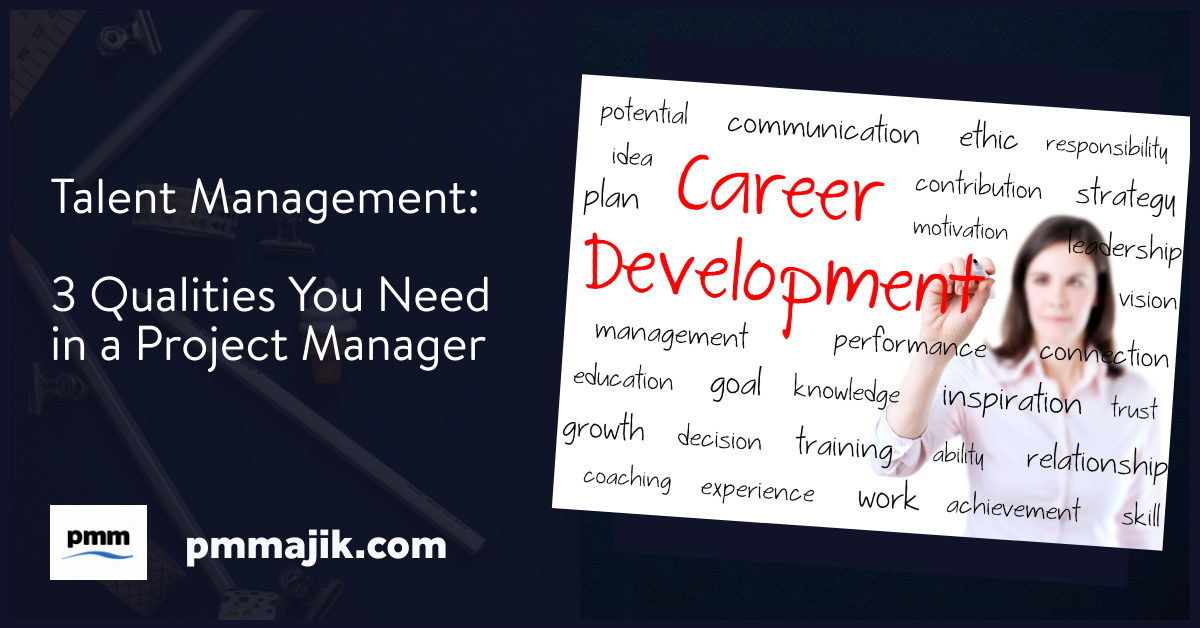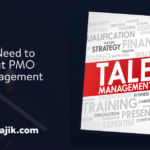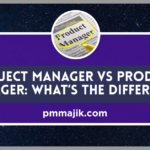The key person your project management office (PMO) works with on projects is the project manager. This role is integral to the success of a project, and your office needs to have a strong working relationship with the ones working on your projects.
Depending on how your PMO is set up, you may be directly responsible for allocating project managers to projects, or you may have less influence on who you work with. You should try and have input on the talent your HR department looks for in a project manager.
What makes a good project manager? What should you tell your HR team to be looking for? While there are myriad technical skills and expert requirements, we’re going to look at overarching skills you should be looking for in project managers and project workers who could be promoted.
Here, we’re going to look at:
- What a talented project manager looks like
- What you can expect from a good project manager
- How to spot a bad project manager
Through the lens of the three key qualities, you should look for the following in a project manager.
1. Organisation and efficiency
It may seem obvious, but you want someone who looks after a lot of moving parts to be well-organised. They have to be on top of things such as:
- The project schedule
- The project budget
- The business strategy
- The people working on their project
A talented PM should have a clearly defined agenda that will drive the project forward, no matter the methodology your PMO uses. Objectives need to be laid out clearly so the PM and their team can measure their success.
A bad PM will end up in a secretarial or administrative function. While this is a skill in itself, you want a PM to be driving success and delivering results – it’s your PMO’s role to run the project admin!
2. Industry expertise
A project manager needs to have a solid understanding of the industry they work in. A key element of running a project is being able to plan and schedule the project activities, and this knowledge comes with experience.
You need to know your project manager knows what the industry-specific risks are. For example, the legal framework in construction will be very different for IT, and you need a PM who knows how to navigate these issues.
Having a business focus and an understanding of business strategy is also key. Every business will have its own strategy, yet having industry knowledge will stand a PM in good stead to fit into a new business.
A sub-par project manager won’t be able to draw on industry knowledge and won’t have a strong professional network to draw on. They also may struggle with risk management on not fully foresee project issues.
3. People skills
Running a project means bringing together the people tasked with delivery. A good project manager will be able to relate to and motivate the people they work with to get the best out of them.
Having a handle on accountability is important. Not only should they be able to assign responsibilities to the right people, but they should be able to hold people accountable for their performance.
That’s not to say a PM will be a dictator. They need leadership and people skills to enable their team rather than lay out commands and expect delivery. They need to understand motivation and recognition.
Someone with bad people skills will have a dissatisfied team and potentially have project workers that experience burnout. s
Managing project manager talent
With the shortage of talented project workers, you need to know what will make a good project manager who can work with your PMO. Defining the personal qualities you expect in PMs helps you to understand how to spot the right talent.
You can use these expectations to spot talent within projects and the wider business. This can help you find people to develop into future project managers with the more specific skills and certifications they will need.






